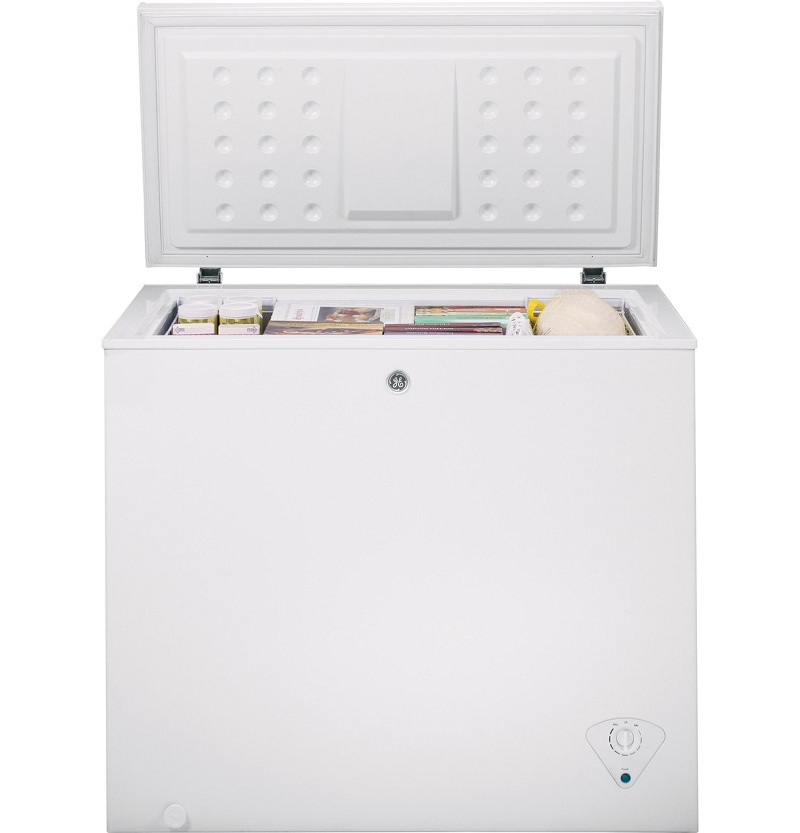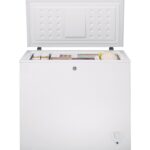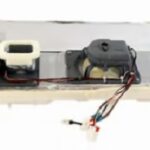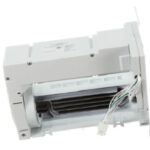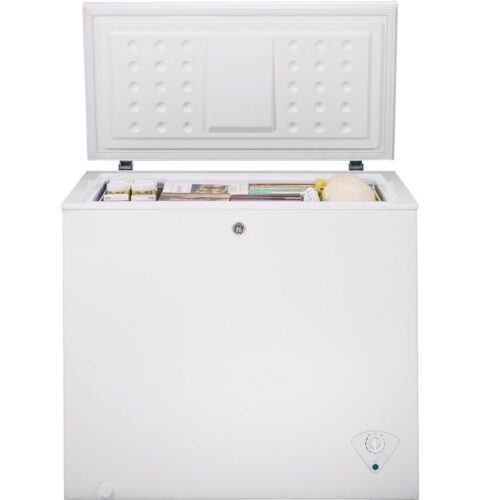
Your GE freezer is a vital appliance in your home, ensuring your food stays fresh and frozen for extended periods. However, like any other appliance, it may encounter issues from time to time.
This troubleshooting guide is designed to help you diagnose and resolve common problems with your GE freezer, keeping it running efficiently and extending its lifespan.
GE Freezer Troubleshooting Guide
Common Problems with GE Freezers
- Temperature Fluctuations: Your freezer may experience temperature fluctuations, leading to thawing or uneven freezing of food.
- Excessive Frost Build-Up: Over time, frost may accumulate inside the freezer, hindering its performance.
- Noisy Operation: Unusual noises such as buzzing, humming, or rattling may indicate underlying issues.
- Failure to Start: If your freezer doesn’t start or turn on, it may indicate electrical or mechanical problems.
- Door Seal Issues: A faulty door seal can cause cold air to escape, leading to inefficient cooling and higher energy consumption.
Possible Damaged Parts
- Defective Thermostat: A malfunctioning thermostat can result in inaccurate temperature control.
- Faulty Defrost Heater: A damaged defrost heater may lead to excessive frost build-up inside the freezer.
- Worn Door Gasket: A worn-out door gasket can cause air leaks, affecting the freezer’s cooling efficiency.
- Broken Evaporator Fan: A malfunctioning evaporator fan can disrupt the circulation of cold air, resulting in uneven cooling.
- Faulty Start Relay: A faulty start relay may prevent the compressor from starting, causing the freezer to fail to cool properly.
Step-by-Step Troubleshooting Guide
- Check the Power Supply: Ensure the freezer is plugged in properly and that the power outlet is functioning. Reset the circuit breaker or replace the fuse if necessary.
- Verify the Thermostat Settings: Adjust the thermostat settings to the recommended temperature and monitor if the freezer starts cooling properly.
- Inspect the Door Seal: Check the door seal for any signs of damage or wear. Replace the door gasket if it’s worn out or damaged to ensure a proper seal.
- Defrost the Freezer: If there’s excessive frost build-up, manually defrost the freezer by unplugging it and allowing the ice to melt. Clean the interior thoroughly before restarting.
- Test the Defrost Heater and Evaporator Fan: Use a multimeter to test the continuity of the defrost heater and evaporator fan. Replace any defective components as needed.
- Check the Start Relay: Test the start relay using a multimeter to ensure it’s functioning correctly. Replace the start relay if it’s faulty.
- Listen for Unusual Noises: Pay attention to any unusual noises coming from the freezer and identify their source. Address any mechanical issues promptly.
Maintenance Tips
- Regularly Clean the Freezer: Clean the interior of the freezer regularly to prevent frost build-up and ensure optimal cooling performance.
- Keep the Door Seal Clean: Wipe the door seal with a damp cloth to remove any dirt or debris that could prevent a tight seal.
- Avoid Overloading the Freezer: Overloading the freezer can obstruct airflow and strain the compressor. Leave space between items for proper air circulation.
- Check the Temperature Regularly: Monitor the freezer temperature regularly to ensure it stays within the recommended range.
- Schedule Professional Maintenance: Consider scheduling annual maintenance by a qualified technician to inspect and service your GE freezer for optimal performance and longevity.
By following this GE freezer troubleshooting guide and implementing regular maintenance practices, you can keep your GE freezer running smoothly and efficiently, ensuring your food stays fresh and frozen for longer periods.
Find GE Freezer Parts HERE!
“Discover a wide range of GE freezer parts, like Ice Maker, Door, Control Board, Shelf, Drawer, Seal/Gasket, Door Handle, Thermostat, and more. Enjoy free shipping and 30-day returns!“
Freezer Troubleshooting Guides and Parts:
- GE Freezer Troubleshooting Guide
- Maytag Freezer Troubleshooting Guide
- DA97-07656A Samsung Refrigerator Freezer Evaporator Cover
- 00702092 Bosch Thermador Ice Maker
- Bosch Refrigerator Troubleshooting Guide: Bosch Fridge Freezer Problems

